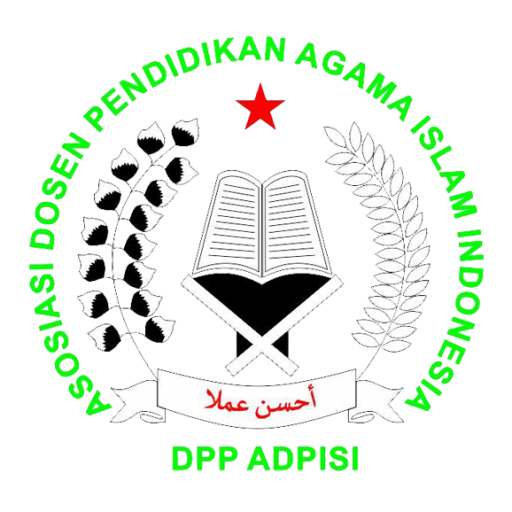Positivisme Sebagai Era Baru Filsafat dan Pengaruhnya dalam Kajian Sosial Islam
DOI:
https://doi.org/10.61595/edukais.2024.8.1.23-41Keywords:
Kata kunci: Positivisme, Filsafat, Kajian Sosial Islam.Abstract
Positivism as a philosophical school that developed rapidly in the 19th century has brought significant changes in the way we view science, especially in approaches to social phenomena. This article aims to analyze the development of positivism and its influence in Islamic social studies, by highlighting how this objective and empirical scientific approach interacts with the Islamic intellectual tradition. This study uses a qualitative method with a literature study approach, which includes a review of various main sources of positivism philosophy and classical and contemporary texts in Islamic social studies. Through an in-depth analysis of the literature, this article finds that although positivism has made an important contribution in introducing empirical methods into social studies, its application in an Islamic context often creates tensions, especially in relation to the debate between empirically based science and the more spiritual traditions of Islam. normative. This article concludes that although positivism can contribute to a more comprehensive understanding of social phenomena in Muslim societies, it is important to consider Islamic normative values to avoid neglecting spiritual and ethical aspects in social analysis.
References
Abidin, M. Z. H. Z., Maidin, P., Yusof, M. Y., Hassan, P., Yaacob, H. R. M., Noh, A. M. M., & Razak, M. I. A. (2017). Pandangan Ibnu Khaldun Berkaitan Kaedah Pendidikan Dalam Kitab Al-Muqaddimah. Idealogi, , 2(1).
Arifin, S., Chotib, M., Rahayu, N. W. I., Hosaini, H., & Samsudi, W. (2024). Kiai's Transformative Leadership in Developing an Organizational Culture of Islamic Boarding Schools: Multicase Study. AL-ISHLAH: Jurnal Pendidikan, 16(2), 2608-2620.
Hosaini, H., Kandiri, K., Minhaji, M., & Alehirish, M. H. M. (2024). Human Values Based on Pancasila Viewed from Islamic Education. Al-Hayat: Journal of Islamic Education, 8(2), 539-549.
Aris, N. (2017). LEGAL POSITIVISM DALAM HUKUM ISLAM (Studi Kritis Terhadap Epistemologi Hukum Mazhab Hanbali). In Jurnal Penelitian (Vol. 11, Issue 2).
Qomar, M., & Fitri, A. Z. (2024). Innovative Learning Strategies for Islamic Religious Education Based on Merdeka Belajar Curriculum in Vocational High Schools. Al-Hayat: Journal of Islamic Education, 8(3), 966-981.
Harahap, E. W., & Samsudi, W. (2023). Moderasi Beragama dalam Islam. Jurnal Pemikiran Keislaman, 7(2).
Hosaini, H., Qomar, M., Kojin, K., & Sibilana, A. R. (2024). Integration of School Curriculum and Islamic Boarding Schools in Preparing the Golden Generation with holistic intelligence. In SHS Web of Conferences (Vol. 205, p. 03001). EDP Sciences.
Irzum Farihah. (2014). Agama Menurut Ibn Khaldun. Fikrah, 2(1).
Hosaini, H., Fitri, A. Z., Kojin, K., & Alehirish, M. H. M. (2024). The Dynamics of the Islamic Education System in Shaping Character. Edukasia: Jurnal Penelitian Pendidikan Islam, 19(1), 79-98.
Ismail, N. (2022). Relevansi Ilmu-ilmu Islam Dengan Pemikiran Auguste Comte Positivisme Terhadap Dasar Pengembangan Ilmu Dakwah Islam (Vol. 5, Issue 2).
Karmillah, I. (2020). Filsafat Positivisme dan Pendidikan Islam di Indonesia. https://doi.org/10.15548/mrb.v3i2.2014
Khaerulasfar, K. (2020). Analisis Penafsiran Moderasi Perspektif Tafsir Al-Sya’rawi. Jurnal Al-Mubarak: Jurnal Kajian Al-Qur’an Dan Tafsir, 5(1). https://doi.org/10.47435/al-mubarak.v5i1.153
Supriadi, S., Hosaini, H., & Sain, Z. H. (2024). Transformation of Literacy-Based Islamic Education Learning Management Integration in Elementary Schools. International Journal of Social Learning (IJSL), 5(1), 294-304.
Khairunnisa, A., Karim, B. A., & Suhaini, N. (2020). KEPENTINGAN TEORI DAN ILMU SOSIOLOGI DALAM KONTEKS PENDIDIKAN MENURUT PERSPEKTIF IBNU KHALDUN. Jurnal Tuah, 1(1).
Cahyono, C., Judijanto, L., Hutahaean, E. S. H., Nisa, U. W., Mulyadi, M., & Hosaini, H. (2024). Pesantren Education as Indonesia's Indigenous Heritage: Nurturing Moral Education in the Digital Era. At-Ta'dib, 19(1), 177-193.
Minhaji, M., Hosaini, H., Prasetiyo, N. T., Maktumah, L., & Alehirish, M. H. M. (2024). Responsive Islamic Education in Exploring Social Values Through the War Takjil Phenomenon: Sociological Perspective in Indonesia. JURNAL INDO-ISLAMIKA, 14(1), 51-61.
Kusmana, K. (2018). EPISTEMOLOGI TAFSIR MAQASIDI. MUTAWATIR, 6(2). https://doi.org/10.15642/mutawatir.2016.6.2.206-231
Mun’im, A., Santoso, L., & Hidayati, N. (2018). Kitab Al-Risālah Dalam Tilikan Positivisme Hukum. Kodifikasia, 12(1). https://doi.org/10.21154/kodifikasia.v12i1.1414
Nugroho, I. (2016). Positivisme Auguste Comte: Analisa Epistemologis Dan Nilai Etisnya Terhadap Sains. Cakrawala: Jurnal Studi Islam, 11(2). https://doi.org/10.31603/cakrawala.v11i2.192
Rachmah, A. D. N., Jamilah, C. R. J., Putri, I. H., & Rosadi, S. G. (n.d.). Aliran Positivisme dan Implikasinya Terhadap Ilmu dan Penegakan Hukum. Das Sollen: Jurnal Kajian Kontemporer Hukum Dan Masyarakat, 02(2023), 1–5. https://doi.org/10.11111/dassollen.xxxxxxx
Rahmatullah, I. (2022). Filsafat Positivisme Hukum (Legal Positivisme). ADALAH, 6(1). https://doi.org/10.15408/adalah.v6i1.26427
Rosika, C., Fitrisia, A., & Ofianto, O. (2023). Analisis Paradigma Filsafat Positivisme. COMSERVA : Jurnal Penelitian Dan Pengabdian Masyarakat, 3(06). https://doi.org/10.59141/comserva.v3i06.1033
Rosyid, M. (2019). Polemik Manusia Perdana antara Tafsir al-Qur’an al-’Aqli dengan Teori Barat. HERMENEUTIK, 12(1). https://doi.org/10.21043/hermeneutik.v13i2.6333
Sampean. (2018). SOSIOLOGI ISLAM : REFLEKSI ATAS KEBERAGAMAAN UMAT ISLAM DI INDONESIA ANTARA DOGMA, AJARAN, DAN REALITAS. Islamic World and Politics, 2, 2655–1330.
Sari, Z., Saefudin, D., & Husaini, A. (2018). Relevansi Pemikiran Sosiologi Islam Ali Syariati dengan Problematika Pendidikan Islam di Indonesia. Ta’dibuna: Jurnal Pendidikan Islam, 7(2). https://doi.org/10.32832/tadibuna.v7i2.1354
Sujati, B. (2018). KONSEPSI PEMIKIRAN FILSAFAT SEJARAH DAN SEJARAH MENURUT IBNU KHALDUN. Jurnal Tamaddun : Jurnal Sejarah Dan Kebudayaan Islam, 6(2). https://doi.org/10.24235/tamaddun.v6i2.3521
Sundaro, H. (2022). POSITIVISME DAN POST POSITIVISME: REFLEKSI ATAS PERKEMBANGAN ILMU PENGETAHUAN DAN PERENCANAAN KOTA DALAM TINJAUAN FILSAFAT ILMU DAN METODOLOGI PENELITIAN. MODUL, 22(1). https://doi.org/10.14710/mdl.22.1.2022.21-30
Yusron, M. A., & Qomar, M. (2024, November). The Concept of Islamic Educational Supervision in Developing Multicultural Education. In Proceeding of International Conference on Language Pedagogy (ICOLP) (Vol. 4, No. 1, pp. 210-221).
Syafril, & Asra, A. (2019). Tafsir Adabi Ijtima’iy (Telaah Atas Pemikiran Tafsir Muhammad Abduh). Syahadah, VII(I).
Syarjaya, H. E. S. (2002). CORAK PEMIKIRAN TAFSIR IBN TAIMIYAH. ALQALAM, 19(93). https://doi.org/10.32678/alqalam.v19i93.452
Syawqi, A. H. (2022). Multiparadigma Sosiologi Hukum Keluarga Islam. Al-Manhaj: Journal of Indonesian Islamic Family Law, 4(1). https://doi.org/10.19105/al-manhaj.v4i1.6200
Taufiq Rahman, M. (2021). Sosiologi Islam. Prodi S2 Studi Agama-Agama UIN Sunan Gunung Djati Bandung.
Ummy Mayadah. (2020). Positivisme Auguste Comte. PARADIGMA: JURNAL KALAM DAN FILSAFAT, 2(1), 1–12. http://journal.uinjkt.ac.id/index.php/paradigma
Ruzakki, H., Zainuddin, Z., Hosaini, H., & Heryandi, M. T. (2024). Analisis Habituasi Ratib Al Haddad dalam Meningkatkan Kecerdasan Emosional dan Spiritual. Jurnal Keislaman, 7(2), 459-474.
Yusdani. (2005). Membongkar Metamorfosis Positivisme Auguste Comte dalam Fiqh. Al-MAwarid, 2(XIV), 212–227.

















